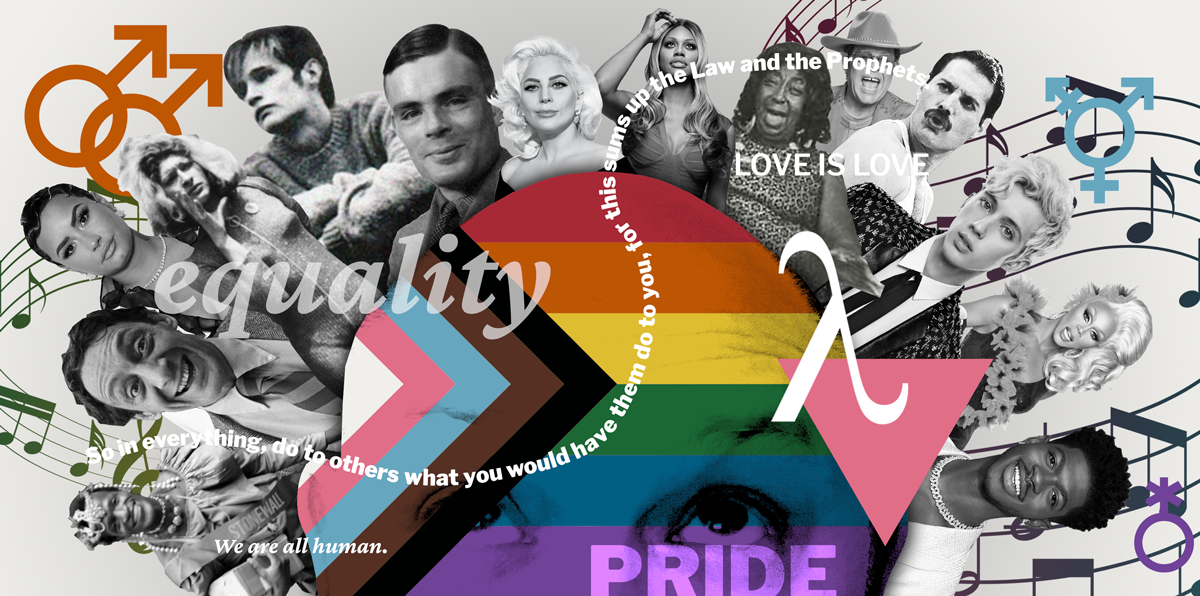 It’s not easy growing up knowing your father thinks you “should have been born a girl.” It’s not easy knowing that your mother, someone who did so much for you, only loves a part of you and constantly “prays for you [to change].” It’s not easy living in a state that, for so long, criminalized things you do in the privacy of your home and comes after children who discover their true selves at an early age. In this big, beautiful, ever-changing blue marble we call home, it’s not easy to be gay, nonetheless gay and happy. Little did I know that despite all the tragedies and hardships that have befallen my 40+ years, that these things, stacked upon other things would create traumas and anguishes that to this very day still robs me of being fully happy and at peace with who I am. My mental health is not who I am, but it is part of the tapestry that is me.
It’s not easy growing up knowing your father thinks you “should have been born a girl.” It’s not easy knowing that your mother, someone who did so much for you, only loves a part of you and constantly “prays for you [to change].” It’s not easy living in a state that, for so long, criminalized things you do in the privacy of your home and comes after children who discover their true selves at an early age. In this big, beautiful, ever-changing blue marble we call home, it’s not easy to be gay, nonetheless gay and happy. Little did I know that despite all the tragedies and hardships that have befallen my 40+ years, that these things, stacked upon other things would create traumas and anguishes that to this very day still robs me of being fully happy and at peace with who I am. My mental health is not who I am, but it is part of the tapestry that is me.
Things are…better?
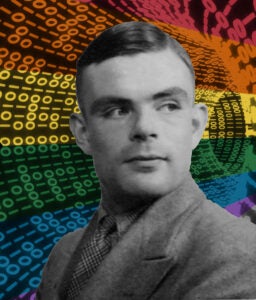 It wasn’t very long ago that a man, admitting he was attracted to another man, landed him in a mental institution. In the US, being gay was considered a mental illness until 1973, and so many nameless, unnumbered faces were subjected to horrors I could never imagine in 2022. Alan Turing, a man widely considered to be the father of theoretical computer science and artificial intelligence, is one of these faces we have a name for. In 1952, just 4 years before my father was born, he was prosecuted for homosexual acts in the United Kingdom, and his punishment: chemical castration. He died by self-inflicted cyanide poisoning a short while later—just before his 42nd birthday, the age I am now. History now values this man and his tremendous contributions, but in his time, he was only valued when he kept his mouth shut and never admitted who he really was or who he loved. Has our society changed? No. We still give privilege and power to the same kind of people who prosecuted Alan. It doesn’t take a genius like Turing to figure out why one in four LGBTQ+ teens attempted suicide in the first half of last year. So, for all these teens, and Alan Turing, it’s not, it wasn’t, easy being gay.
It wasn’t very long ago that a man, admitting he was attracted to another man, landed him in a mental institution. In the US, being gay was considered a mental illness until 1973, and so many nameless, unnumbered faces were subjected to horrors I could never imagine in 2022. Alan Turing, a man widely considered to be the father of theoretical computer science and artificial intelligence, is one of these faces we have a name for. In 1952, just 4 years before my father was born, he was prosecuted for homosexual acts in the United Kingdom, and his punishment: chemical castration. He died by self-inflicted cyanide poisoning a short while later—just before his 42nd birthday, the age I am now. History now values this man and his tremendous contributions, but in his time, he was only valued when he kept his mouth shut and never admitted who he really was or who he loved. Has our society changed? No. We still give privilege and power to the same kind of people who prosecuted Alan. It doesn’t take a genius like Turing to figure out why one in four LGBTQ+ teens attempted suicide in the first half of last year. So, for all these teens, and Alan Turing, it’s not, it wasn’t, easy being gay.
Fortunately, for me things turned out better than Turing, (Better? Yes. Great? No.) I have been out now for more than 20 years, and in that time, I have seen so much forward momentum for the LGBTQ+ community. Lawrence v. Texas, Repeal of DADT, hate crimes legislation, and Obergefell v. Hodges just to name a few. For each of these victories, there were many setbacks. Just like the setback many believe to be coming for reproductive rights, we all have also faced personal setbacks. Some of my setbacks are still ongoing, but the main one is never being accepted by my mother. This has been one of the biggest traumas in my life.
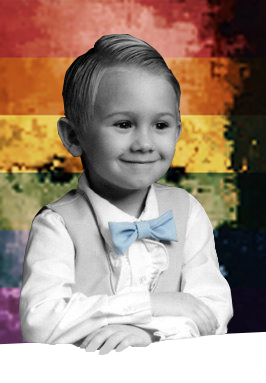 I was a good kid. An honor roll student that helped my mother crawl out of her lowest low following the slow implosion of my parent’s marriage. Years of screaming and separations finally culminated in divorce. It was, for me, a welcomed relief. I no longer had to listen to the yelling in the next room, a yelling that sometimes was about me being born “wrong”. When my mom finally got out of her dumps, I vividly recall hearing her truly laugh for the first time—my mom hadn’t been happy for so long, but she was in love with her high school sweetheart and tried to stick it out for us. Seven years later, and after my mom remarried, she asked me if I was gay. (I’m pretty sure someone said something to her, but she still refuses to discuss it.) I wasn’t ready to be out, but didn’t want to lie, so I said “Kinda.” (What does kinda gay even mean?) Anyway, that first summer after college was the worst summer of my life.
I was a good kid. An honor roll student that helped my mother crawl out of her lowest low following the slow implosion of my parent’s marriage. Years of screaming and separations finally culminated in divorce. It was, for me, a welcomed relief. I no longer had to listen to the yelling in the next room, a yelling that sometimes was about me being born “wrong”. When my mom finally got out of her dumps, I vividly recall hearing her truly laugh for the first time—my mom hadn’t been happy for so long, but she was in love with her high school sweetheart and tried to stick it out for us. Seven years later, and after my mom remarried, she asked me if I was gay. (I’m pretty sure someone said something to her, but she still refuses to discuss it.) I wasn’t ready to be out, but didn’t want to lie, so I said “Kinda.” (What does kinda gay even mean?) Anyway, that first summer after college was the worst summer of my life.
Shortly after, mom outed me to my dad, (a man she never spoke to after their horrible marriage ended,) and my sister (her response was “Duh.”) After some very uncomfortable conversations, one including my stepfather using his personal prejudice toward gay men and demonstrating, with an invisible person and extreme disgust on his face, how gay men have sex, I agreed to go to counseling. What I agreed to was a neutral party…what I got was anything but. After talking to the church we attended, my mom and step-dad sent me to the counseling center within the church, saying “[Their] way or the highway” and threatening my college funding if I did not comply.
The version of “counseling” I went to could be called a type of conversion therapy. If you don’t know what that is, there are several versions. Some are very extreme including ice baths and shock therapy. Some take a “gentler” approach like being sent away to a camp until you get brainwashed to lie to yourself about your true self. Luckily, the one I was sent to was a series of therapy sessions to find my “root” (aka the “cause” of me being gay. And if you didn’t already know, we are ALL born this way.) I was told, through their very narrow point of view, how to pull up the root of my gayness and become the “person God wants me to be” through prayer, self-reflection, and pressure from home and church. The therapist told me the root of me being gay was growing up with an absentee father who was ashamed of his artistic, non-athletic son who was nothing like him and that the lack of male/fatherly love is what drove me to seek it from men. The therapist would go on to break my trust and tell my parents everything that we discussed after each session and inform them of my “progress.”. (I was 19 and this breach was extremely unethical, pretty sure it’s illegal too.) I told myself, “Just get through this summer. And tell them what they want to here. Then you can go back to school and figure out what to do next.” I was very confident with who I was, but I just wanted out of this situation.
Looking for LGBTQ+ Mental Health Resources in Texas?
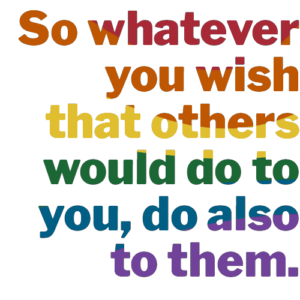 This same summer, I was working at the church day camp as a camp counselor with the friends I grew up with. We were all home from our first year of college. It was a fun summer job, in a familiar place, surrounded by familiar faces. At the same time, my mom was also seeking help/advice of her own from the same church. She talked to a church leader, and when he heard I worked at the church, he knew immediately that had to change. A few days later, I received a phone call from the church’s children’s minister. I had grown up at the church, so she knew me and the person I was, but she was following orders. She told me, and I’m paraphrasing, “Darrell, I know you and what’s in your heart, but because of you coming out, we can no longer let you work at day camp anymore.” She went on to imply that it wasn’t her choice, and communicated that church lawyers had been consulted, and because the church had previously been sued for a gay man teaching Sunday school, not allowing us gays near kids was now church policy…all because someone thinks were all out to recruit your children. (I’m sure you’ve heard of “grooming” as a term being re-used by those on the far-right.) The minister apologized and hung-up. This short, heart-wrenching phone call was the only sympathy I received about this whole situation the entire summer. That evening, my step-dad brought home a legal document—my family was involved in my firing. In the document, it stated that by me “quitting” over the phone, never showing up in person, giving explanation, or the standard two-week’s notice, I would receive my full-summer’s pay. I signed, got my check, awkwardly avoided some of my closest friends and dodged their questions about why I had quit for the entire summer.
This same summer, I was working at the church day camp as a camp counselor with the friends I grew up with. We were all home from our first year of college. It was a fun summer job, in a familiar place, surrounded by familiar faces. At the same time, my mom was also seeking help/advice of her own from the same church. She talked to a church leader, and when he heard I worked at the church, he knew immediately that had to change. A few days later, I received a phone call from the church’s children’s minister. I had grown up at the church, so she knew me and the person I was, but she was following orders. She told me, and I’m paraphrasing, “Darrell, I know you and what’s in your heart, but because of you coming out, we can no longer let you work at day camp anymore.” She went on to imply that it wasn’t her choice, and communicated that church lawyers had been consulted, and because the church had previously been sued for a gay man teaching Sunday school, not allowing us gays near kids was now church policy…all because someone thinks were all out to recruit your children. (I’m sure you’ve heard of “grooming” as a term being re-used by those on the far-right.) The minister apologized and hung-up. This short, heart-wrenching phone call was the only sympathy I received about this whole situation the entire summer. That evening, my step-dad brought home a legal document—my family was involved in my firing. In the document, it stated that by me “quitting” over the phone, never showing up in person, giving explanation, or the standard two-week’s notice, I would receive my full-summer’s pay. I signed, got my check, awkwardly avoided some of my closest friends and dodged their questions about why I had quit for the entire summer.
That summer, I unexpectedly came out, I was outted by my mom, had my education and future well-being threatened and was fired from my job, causing me to experience intense mental anguish. All of that, in a period when all I what I really needed was unconditional love and support from my family. Something I still don’t get from them. I finished my therapy, told everyone what they wanted to hear, and went back to college for the fall semester to escape my new reality. When I returned to college, I stepped back from my extra-curriculars, and tried just focusing on just my courses. However, I couldn’t focus. The mother that I loved more than anything didn’t love who I was, and my top 10% GPR from my freshman year took a huge hit. I withdrew from school for personal reasons, and for my own mental health, I decided I would live life my way, for my happiness, and choose the highway. I haven’t looked back since.
An Intersection of Change
When I started down this highway, little did I know of the road ahead or behind me. I’ve since learned the road I chose, the road behind me, was paved by the amazing women and men of the gay rights movement. And the movement was 100% inspired by the Civil Rights movement of the 1960s. It took someone at the intersection of these two groups to get fed up enough to start fighting back. This fight helped birth the alliance that gave rise to the still-continuing LGBTQ+ rights movement. Her name was Marsha P. Johnson.
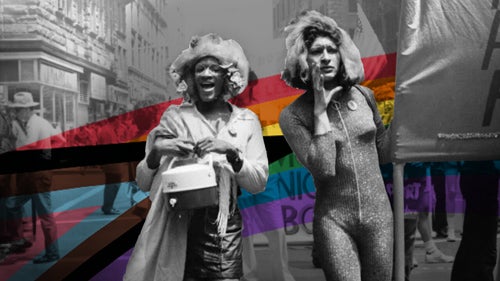 Never heard of Marsha? I’m not surprised, queer history is not taught in schools, especially for someone like Marsha. She was a poor, black, gender non-conforming drag performer who identified as a gay transvestite queen. (Today we’d call her non-binary and use genderless pronouns.) And what was the fight she was said to have helped start? The Gay Liberation Front, a reaction to the Stonewall Uprising. Stonewall was a response to police raids on lesbian and gay bars in New York City, yet another example of police brutality on minority groups. Marsha, along with her close friend Sylvia Rivera started it all. A black drag queen and a Latinx Transgender woman, two people of color (POC), are the mothers of the movement. A movement that many queer POC still feel excluded from. So, for those like Marsha and Sylvia, it wasn’t easy being gay, or gay and Black, or trans and Latinx. It’s still not easy for my LGBTQ+ POC brothers, sisters, niblings, and quiblings. (Nibling and quibling are non-binary words for a sibling. Nibling is non-binary specific, while a quibling is non-binary and queer.)
Never heard of Marsha? I’m not surprised, queer history is not taught in schools, especially for someone like Marsha. She was a poor, black, gender non-conforming drag performer who identified as a gay transvestite queen. (Today we’d call her non-binary and use genderless pronouns.) And what was the fight she was said to have helped start? The Gay Liberation Front, a reaction to the Stonewall Uprising. Stonewall was a response to police raids on lesbian and gay bars in New York City, yet another example of police brutality on minority groups. Marsha, along with her close friend Sylvia Rivera started it all. A black drag queen and a Latinx Transgender woman, two people of color (POC), are the mothers of the movement. A movement that many queer POC still feel excluded from. So, for those like Marsha and Sylvia, it wasn’t easy being gay, or gay and Black, or trans and Latinx. It’s still not easy for my LGBTQ+ POC brothers, sisters, niblings, and quiblings. (Nibling and quibling are non-binary words for a sibling. Nibling is non-binary specific, while a quibling is non-binary and queer.)
The LGBTQ+ community is made of humans. (Yes, we are human despite the opposition trying to de-humanize us and take away our rights or prevent us from saying the word “gay.”) So, by being human we too can make mistakes and exclude certain parts of our community. For a long time, we excluded the transgender community and hated using the word queer—for many years it was just the lesbian and gay movement. Then we added B, then T. In more recent years We’ve since taken ownership of the word queer and use this former derogatory word to describe our ever more inclusive alphabet, or LGBTQQIAAP (lesbian, gay, bisexual, transgender, queer, questioning, intersex, allies, asexual, pansexual) community. (Do take note of what the ‘P’ stands for, not what some conservatives may lead you to believe.) Other ways we’ve also tried to further represent underrepresented groups within our community is to update the pride flag. (I’ll admit, I wasn’t a fan of any changes to the flag, I always felt the rainbow stood for the diverse nature of the community. But after listening to transgender and POC voices, I understood the reason for having an alternate version of our beloved pride flag.) The pride flag that has come to represent our community and our movement has evolved several times since it first flew over the San Francisco city hall in 1978. The flag has inspired many other pride flags for each group within our rainbow community.
The Road Ahead
For several years after my horrible summer, I hid who I was. Can you blame me? Just after that summer was when Mathew Shepard was murdered, I didn’t want to end up like him. I continued for many years to experience discrimination in my personal life, in the workplace, and from my family. I was out to some, and eventually out to everyone. In the 20+ years since, I have spent time educating myself about the road behind me. I see direct lines of influence and progress from people like Gertrude Pridgett (aka Ma Rainey, a woman who had relationships with both men and women) to Montero Lamar Hill (aka Lil Nas X, who is currently one of the biggest stars in the music industry;) from Elton John or Freddie Mercury to Lady Gaga, Demi Lovato, and Troye Sivan; or Harvey Milk to RuPaul to Laverne Cox. With influences and pioneers like these, the road ahead is sure to be full of great music, with fabulous outfits, and a flair for the dramatic.
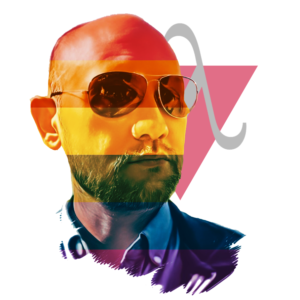 Speaking of dramatics, I know that for some of you, this seems like the rantings of a dramatic, bitter, angry gay man, who’s not over the wrongs of his past. I suppose you may be right. I will never be over them, and that’s for me to deal with. It affects my mental health every day. I’m getting to a point, trust me. By writing this, by examining history, by learning about certain privileges we have, we can all learn to better deal with our own mental health and how to better help the mental health of those around us.
Speaking of dramatics, I know that for some of you, this seems like the rantings of a dramatic, bitter, angry gay man, who’s not over the wrongs of his past. I suppose you may be right. I will never be over them, and that’s for me to deal with. It affects my mental health every day. I’m getting to a point, trust me. By writing this, by examining history, by learning about certain privileges we have, we can all learn to better deal with our own mental health and how to better help the mental health of those around us.
Those of us who are white live with privilege every day of our lives, as do those of us who identify as men also benefit from more privilege than those who identify as women. And until you identify and live as an out LGBTQ+ person, in a society, that does not value you and your individuality—you too benefit from the perceived privilege of being straight and cisgender.
For many years and throughout several relationships I tried to stay in my mother’s life. I gave her every opportunity, every chance to accept me finally, and about seven years ago something clicked—I do not need her approval to be happy. As I left her house for the last time, I told her with a smile and kiss on the cheek that when she’s ready to accept me, the person I share my life with, and let us both into her home, she would see me again. I’ve since only seen my mother once, a fleeting moment of outreach on my part. When I examine the wrongs of my past and the mental health issues they have caused me—when we all do the same, we can begin to start the healing process and continue building the road ahead. So yes, it’s not easy being gay, or lesbian, or bisexual, or transgender, or queer, or especially one of these and a POC. Those before us started building our beautiful rainbow road for a reason—we had to forge our own destinies, make our own way, devise the symbols to represent us, and write our own histories. As a community, we continually make room for everyone that is different or excluded or shunned by the rest of society. We needed to do all these things (and will need to do whatever things the future may bring) so we can all reach our destination: a future of happiness, love, and acceptance. A future with balance. A future that rejoices in a proud queer community being included.
No, it’s not easy being gay, but it is getting easier.
The opinions expressed here are those the author and not those of the Hogg Foundation or the University of Texas at Austin.
